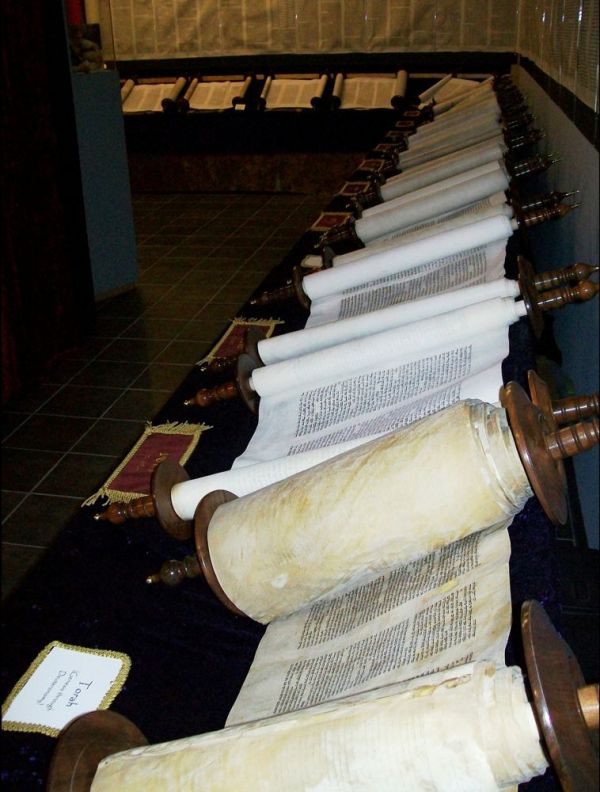Romans 5:1 Therefore, since we have been justified through faith, we have peace with God through our Lord Jesus Christ.
Paul sees the believer in a state of grace. He expresses this state of grace with: "[we are] justified"; justification has been accomplished. This is the truth that Paul proclaims. The passage from life to death, from sin to grace, takes place, has taken place, and will always take place through faith in Jesus Christ. Christ, through his death and resurrection, has given us the effects of his work; we have been "justified." By using the aorist passive participle (= having been justified), Paul emphasises that this work now belongs to us. He alludes to a specific moment in the life of Christians that belongs to the past: baptism. This is a fundamental biblical fact.
We are justified "ek pisteōs", "by faith". It is a movement from a place and indicates the source from which this justification flows. Jesus Christ, who died and rose again, is the sacramental place where this justification takes place, which is accessed through faith and not through the works of the law. We are justified the moment we believe and accept Jesus Christ as the one and only Word of eternal life.
What happens when our justification is accomplished? We are at peace with God. The author of salvation is also the author of peace: there is no true peace except in Christ. This peace was established when we, enemies of God, were reconciled to God through Jesus Christ. Peace is not a state of inner balance, nor is it our peaceful behaviour. Peace is the restoration of our relationship with God, because we are reconciled as a result of justification.
When we are at peace with God, we also find peace with other people; we also find peace with creation, which we are called to protect and cultivate, as it has been entrusted to our care by God so that we may make it a home where people can live with dignity, wisdom and joy. The mistake of man today is to think that there can be peace among men and with creation while man remains in his falsehood and sin. Peace comes only from justification and as long as man lives justified.
We are at peace if we are in Christ, we are at peace if we live in the Word of Christ, we are at peace only through Christ. This is the cry that Paul makes resound in his churches, so that they may be convinced that outside of Christ no peace will ever be possible. It is an illusion to think of peace without justification, to think of peace outside of Christ. Peace is Christ, it is in Christ, it is through Christ. He is the way through which a person can go in peace towards another person. Those who exclude Christ close the door to true peace. Without Christ there can never be peace, because people are not in the truth.
Faith, therefore, is faith in God who has made Christ the only way to salvation. So our faith is in God, but it only becomes effective if it is faith in the work of Christ. God the Father and Jesus Christ are one principle of faith, one faith that saves. There is no faith in the Father that is not faith in the Son, and there is no faith in the Son that is not faith in the Father. This unity must always be safeguarded, proclaimed and defended.
It is through this faith that we obtain the gift of peace, because it is through this faith that we are justified, that is, God cancels our debt, makes us his children in Christ, and restores us to his friendship. This is peace.
It should be noted that Jesus Christ is called Kyrios - Lord - to indicate the sovereignty, the divine nature of the Messiah. Kyrios is a term repeatedly used in the Septuagint for Yahweh, and accredits Jesus as the Emmanuel, God with us.
Argentino Quintavalle, author of the books:
- Apocalypse – exegetical commentary
- The Apostle Paul and the Judaizers - Law or Gospel?
Jesus Christ True God and True Man in the Trinitarian Mystery
The Prophetic Discourse of Jesus (Matthew 24-25)
All generations will call me blessed
Catholics and Protestants in comparison – In defence of the faith
The Church and Israel according to St. Paul – Romans 9-11
(Available on Amazon)




